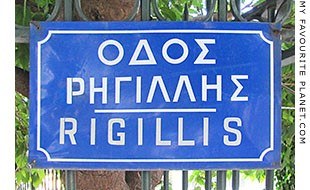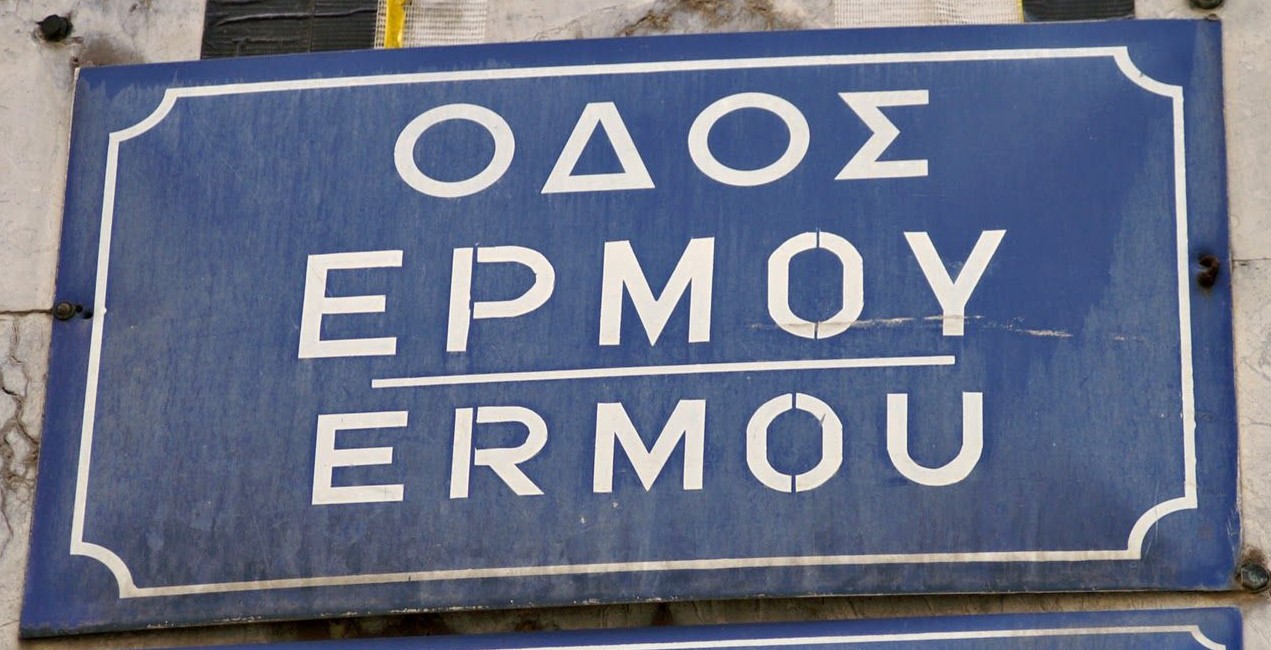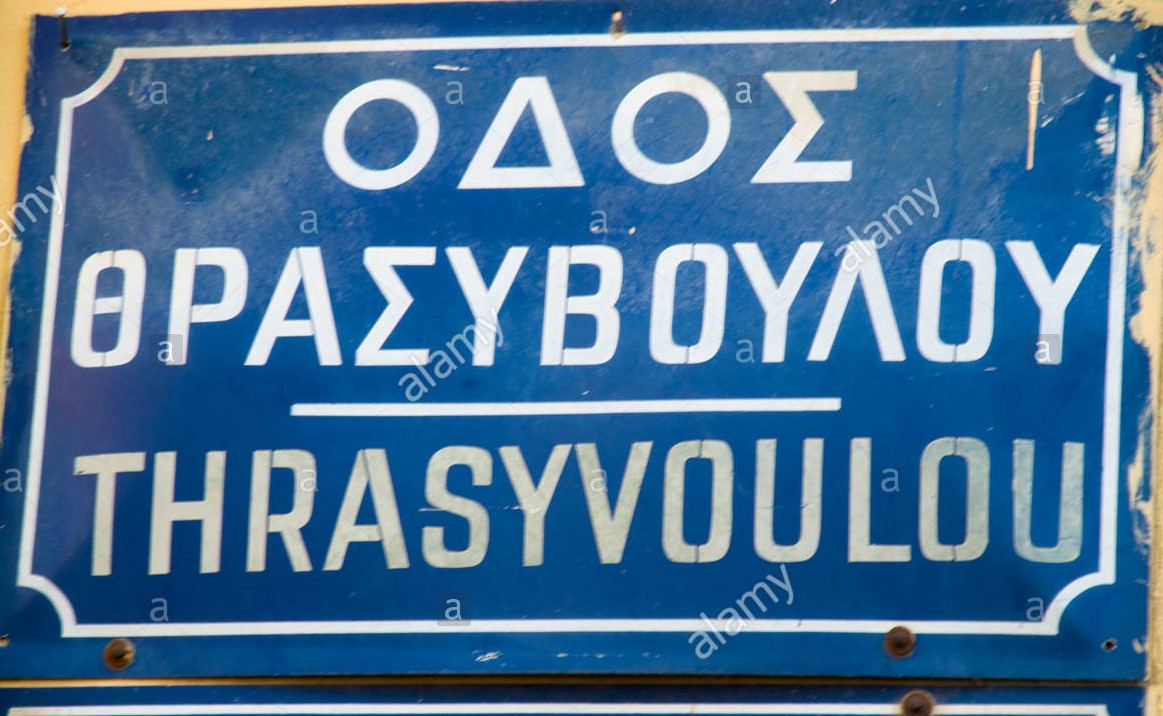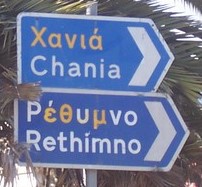 Foreign Names
Foreign Names
For most languages, no matter how bad the current orthography is, they're used to it, and they don't see any big gain to be had from changing. For them, the most obvious use of Musa is for transcription. People don't know Musa yet, but if they're going to see it all the time on their own street signs, when they travel, in guidebooks, phrasebooks and dictionaries, they'll learn it - it's not very hard!
At worst, they can print out a "cheat sheet" like this one. Since every language can have its own "cheat sheet", everyone will get it right!
| Translation: tells you what it means |

|
| Transcription: tells you how it sounds |

|
| Both Η and Ι are transcribed as I |
| Transliteration: tells you how it's written |

|
| A transcription would read Hermu |
| Romanization: into the Roman alphabet |
| Anglicization: into the English alphabet |
But what's wrong with using the Roman alphabet, as we now do? Well, only about half of the world writes in the Roman alphabet. Some of the other scripts are widespread, notably Cyrillic and Arabic, while others are used by only one language - Greek, Hebrew, Georgian, Armenian, Thai, Korean, and many more. Either way, since travelers often can't read the local script, it has become very common to add a Roman-alphabet transcription - a Romanization - for place names, people's names, even food and other items of interest to foreigners. I'll use examples from Greek, the easiest other alphabet for us to read.
Guidebooks and phrase books also use transcription to write pronunciations, even of entire phrases, and even when the local language is written in the Roman alphabet. For example, the Parisian avenue Champs Elysées has been transcribed as shawn zayleezay, even though the original is in the same alphabet!
The big advantage of using the Roman alphabet for transcription is that almost everybody knows it, more or less. But the problems with the Roman alphabet make it a poor choice, unless you're satisfied with matching just a few sounds. Sometimes, that's not enough: many tourists visiting Paris can't ask for directions to Rouen, Reims, or Rennes without confusing them.
The Roman alphabet has two main problems. First, it's missing letters for many sounds.

In this image, Θ has been transliterated as TH, since that's how we spell that sound in English: it's the sound in thin (not this). But note that the first Υ has been left untransliterated, since English doesn't have the sound it represents (like German ü). In fact, English speakers would probably pronounce that letter as ee as in crazy or as eye as in my, so the transliteration fails. Meanwhile, the last two Υ s have been transliterated as U, which is OK, as long as you know that the digraph ΟΥ (OU) is how Greek spells the sound "oo" as in goose. French vous and English you spell it the same way.
Second, the letters and digraphs of the Roman alphabet don't have the same sounds in the various languages that use them. For example, if the transliteration had been aimed at Spaniards, the Θ above would have been spelled as Z, since that's how that sound is spelled in Castillian Spanish. If it had been aimed at French people, the first Υ would have been spelled as U, since that's how that sound is spelled in French, as in tu. And if it had been aimed at English people, the two ΟΥ s would have been spelled OO. That's why we speak about anglicization instead of romanization, since the Roman alphabet has no standard values for many letters.
Here's another example.

In English, we don't have the sound spelled by Greek Χ : it's like the CH in German Bach. So they transliterate it as CH, even though that spells a different sound in English, French, Spanish, or Portuguese. I wonder how many visitors think they're going to Chaina!
Chinese pinyin is an interesting example of a romanization that is neither a transcription nor a transliteration. It writes Chinese in the Roman alphabet, but there is no Roman-alphabet language that assigns those sounds to those letters. For example, there's a Chinese syllable written que in pinyin, a very common word which is pronounced [kœ] in French, [kə] in Catalan, [ke] in Spanish and [kɛ] in Portuguese. In English, it's pronounced [kwɛ] in words like quench, and in German it's pronounced [kve] as in Quer. But in Chinese, it's pronounced [tɕʰɥɛ]! In the Yale romanization, which was a transcription, it was written chywe. The explanation is that pinyin is a spelling system for Chinese people, since their normal writing system doesn't indicate pronunciation. They have another spelling system called zhuyin fuhao or bopomofo, in which the same syllable is spelled ㄑㄩㄝ.
Of course, Musa doesn't have any of these problems: Musa has all the letters we need for all the world's languages, and they're unambiguous - they always have the same pronunciation. However ...
Transcription of Foreign Names
This section deals with the problems that arise when you need to include a foreign word or name in your text. Two cases are pretty easy. The first is when your language already has a translation, for example, the names Spain or Japan in English. Spain and Japan are English names for foreign countries, not foreign names.
The other easy case is the opposite: when there's no alternative to including the name in its language of origin. For example, if you want to go to the famous waterfalls on the Chinese-Vietnamese border, you're probably better off carrying a piece of paper with 板約 than trying to figure out whether to pronounce it Bản Giốc (Vietnamese), Báanjoek (Cantonese), Bǎnyuē (Chinese), or the equivalent in Pinghua or Zhuang.
But in between are many cases where we want to refer to Łódź or bruschetta in passing. These are both examples of false friends: Łódź is pronounced woodge, and the sch in bruschetta has an sk sound. Since Musa letters represent the same sound in every language, there are no false friends. However, if we simply write the word in Musa as it's written in its native language, we may encounter unfamiliar letters or a different gait. Nonetheless, people should still be able to read it correctly, and that makes it much easier to look up.
Another alternative is to write it in Musa as we pronounce it in our language. For example, the name 毛泽东 used to be transcribed as Mao Tse-Tung, using the Wade-Giles romanization. That does a pretty good job of getting an English speaker to pronounce the name in a recognizable way. Now, we tend to write it in the official pinyin romanization as Máo Zédōng, which doesn't. In Musa, we could write his name in Chinese as , or we could write the "English pronunciation" as in Alphabet gait. The latter uses only English sounds and omits tones, but it's about as close as we can get within those constraints, and it fits easily in our mouths and on our pages.
But you should be clear about which you're doing! The worst thing you can do is mix up the two approaches, for example writing Mao's name as (reading the pinyin as if it was English). In Japanese, we can call him ・ but not (a Japanese reading of the Chinese characters).
| © 2002-2025 The Musa Academy | musa@musa.bet | 08mar25 |